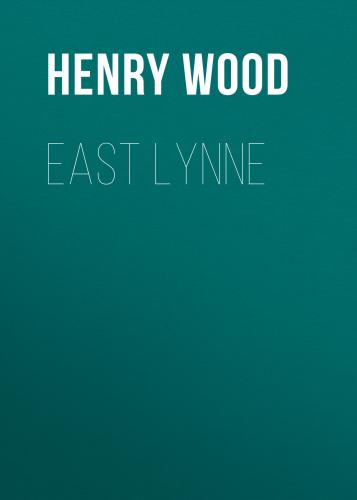“Oh! Don’t, Archibald,” she uttered, in the impulse of the moment; “don’t recall it.”
Isabel wondered.
“Can Peter take me?” continued Barbara.
“I had better take you,” said Mr. Carlyle. “It is late.”
Barbara’s heart beat at the words; beat as she put her things on—as she said good-night to Lady Isabel and Miss Carlyle; it beat to throbbing as she went out with him, and took his arm. All just as it used to be—only now that he was the husband of another. Only!
It was a warm, lovely June night, not moonlight, but bright with its summer twilight. They went down the park into the road, which they crossed, and soon came to a stile. From that stile there led a path through the fields which would pass the back of Justice Hare’s. Barbara stopped at it.
“Would you choose the field way to-night, Barbara? The grass will be damp, and this is the longest way.”
“But we shall escape the dust of the road.”
“Oh, very well, if you prefer it. It will not make three minutes’ difference.”
“He is very anxious to get home to her!” mentally exclaimed Barbara. “I shall fly out upon him, presently, or my heart will burst.”
Mr. Carlyle crossed the stile, helped over Barbara, and then gave her his arm again. He had taken her parasol, as he had taken it the last night they had walked together—an elegant little parasol, this, of blue silk and white lace, and he did not switch the hedges with it. That night was present to Barbara now, with all its words and its delusive hopes; terribly present to her was their bitter ending.
There are women of warm, impulsive temperaments who can scarcely help, in certain moments of highly wrought excitement, over-stepping the bounds of nature and decorum, and giving the reins to temper, tongue, and imagination—making a scene, in short. Barbara had been working herself into this state during the whole evening. The affection of Isabel for her husband, her voice, his caresses—seen through the half open doors—had maddened her. She felt it impossible to restrain her excitement.
Mr. Carlyle walked on, utterly unconscious that a storm was brewing. More than that, he was unconscious of having given cause for one, and dashed into an indifferent, common place topic in the most provoking manner.
“When does the justice begin haymaking, Barbara?”
There was no reply. Barbara was swelling and panting, and trying to keep her emotion down. Mr. Carlyle tried again,—
“Barbara, I asked you which day your papa cut his hay.”
Still no reply. Barbara was literally incapable of making one. The steam of excitement was on, nearly to its highest pitch. Her throat was working, the muscles of her mouth began to twitch, and a convulsive sob, or what sounded like it, broke from her. Mr. Carlyle turned his head hastily.
“Barbara! are you ill? What is it?”
On it came, passion, temper, wrongs, and nervousness, all boiling over together. She shrieked, she sobbed, she was in strong hysterics. Mr. Carlyle half-carried, half-dragged her to the second stile, and placed her against it, his arm supporting her; and an old cow and two calves, wondering what the disturbance could mean at that sober time of night, walked up and stared at them.
Barbara struggled with her emotion—struggled manfully—and the sobs and shrieks subsided; not the excitement or the passion. She put away his arm, and stood with her back to the stile, leaning against it. Mr. Carlyle felt inclined to fly to the pond for water, but he had nothing but his hat to get it in.
“Are you better, Barbara? What can have caused it?”
“What can have caused it?” she burst forth, giving full swing to the reins, and forgetting everything. “You can ask me that?”
Конец ознакомительного фрагмента.
Текст предоставлен ООО «ЛитРес».
Прочитайте эту книгу целиком, купив полную легальную версию на ЛитРес.
Безопасно оплатить книгу можно банковской картой Visa, MasterCard, Maestro, со счета мобильного телефона, с платежного терминала, в салоне МТС или Связной, через PayPal, WebMoney, Яндекс.Деньги, QIWI Кошелек, бонусными картами или другим удобным Вам способом.
